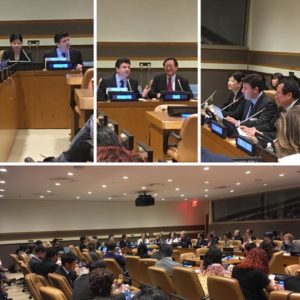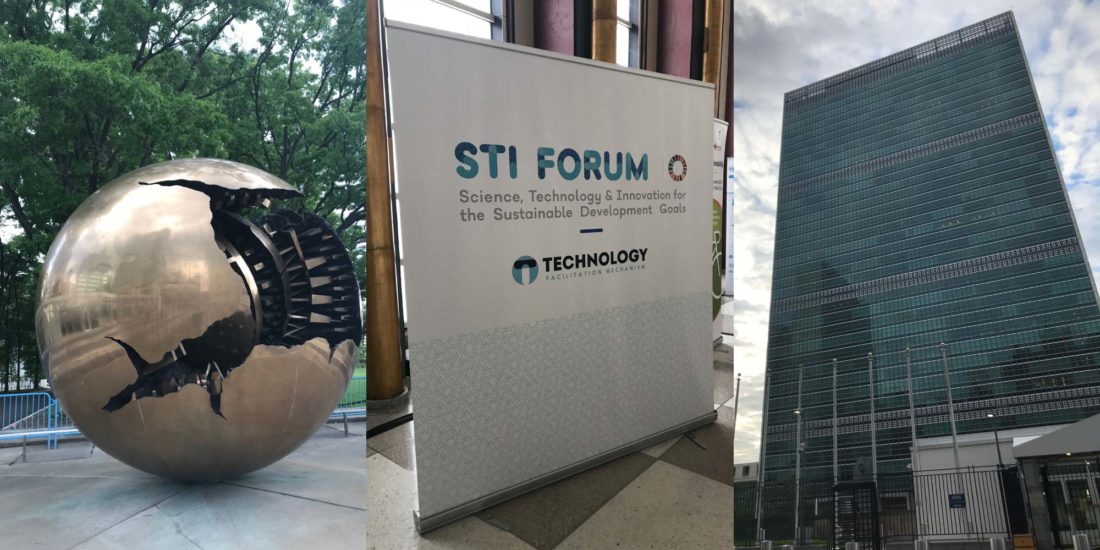IAFOR collaborated with the United Nations in the hosting of a special session at the Third Annual Multi-stakeholder Forum on Science, Technology and Innovation for the Sustainable Development Goals (STI Forum 2018) at the United Nations Headquarters in New York on June 6, 2018.

Dr Joseph Haldane, Chairman and CEO of IAFOR, co-moderates a roundtable session on Innovators and Investors at the United Nations Headquarters in New York.
Dr Haldane said: “For IAFOR, impact investing is a particular area of interest in regards to the funding of research in higher education, and dovetails with the work we will be doing within the IAFOR Research Centre at the Osaka School of International Public Policy (OSIPP) at Osaka University, as part of our new Innovation and Value Initiative, and also with The IAFOR Global Innovation & Value Summit 2018 (GIVS2018) to be held in Tokyo later this year.” He added that “it is a great recognition of IAFOR to have been invited to collaborate, and we are honoured to have been asked to work with the United Nations at this important event, and look forward to working with the UN and other stakeholders in the support of Science, Technology and Innovation for the Sustainable Development Goals (STI-SDG).”
Dr Haldane, who teaches on the postgraduate Global Governance course at OSIPP, and is an Expert Member of the World Economic Forum in this area, was also keen to raise the issue of governance and policy implications of the uses of blockchain technology. In his introduction to the panel, he suggested that the use of blockchain, given its verifiability and the transparency of transactions might have a positive effect on systems of governance. This might be especially important at a time when the rules-based international system, exemplified by institutions such as the United Nations, are being challenged.

